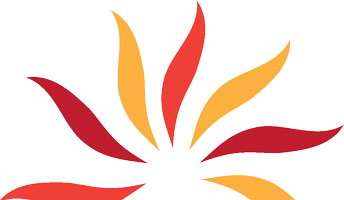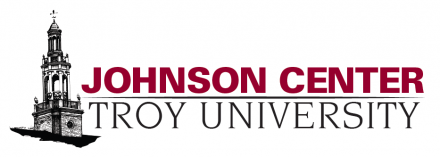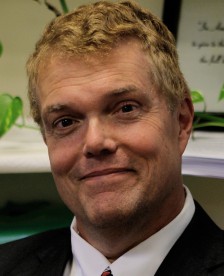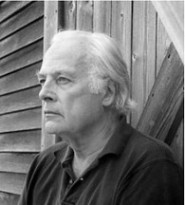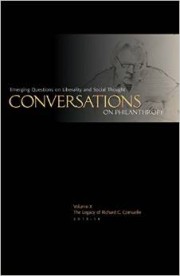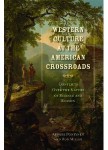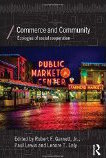2014 – Philanthropy and the Economic Way of Thinking
November 6-8, 2014
Troy University, Alabama
in conjunction with
The Philanthropic Enterprise and the Johnson Center for Political Economy at Troy University are convening a conference on “Philanthropy and the Economic Way of Thinking.” The goal of this conference is to deepen our understanding of the relationships among philanthropic enterprises, the economy, and public policy.
Empowering, Not Enfeebling: Beyond the “‘Market v. State'” Dichotomy
Keynote Address
Friday, November 7, 2014
6:00 p.m.
Dr. Michael C. Munger
Professor of Political Science, Public Policy, and Economics
Duke University
What is philanthropy’s role in the political economy of a free society? In the context of contemporary political and policy debate, the argument for liberty is often reduced to an argument for “markets.” This dichotomy, however, is a rhetorical straitjacket, and in any case it’s not the best argument for liberty. The market vs. State dichotomy was dreamed up by German sociologists in the nineteenth century, and it leaves little room for a robust conceptual and institutional framework for charitable behavior and philanthropic enterprises. To think more clearly about the role of philanthropy in a free society, we have to begin by understanding the myriad benefits of voluntary private cooperation. Markets are part of that, a useful way of achieving prosperity, but a variety of other emergent social arrangements—more properly viewed under the rubric “society”—are also crucial for prosperity.
Call for Papers
![]() TPE + Johnson Center 2014 Conference Call for Papers
TPE + Johnson Center 2014 Conference Call for Papers
The Philanthropic Enterprise and the Johnson Center for Political Economy at Troy University are issuing a call for original research papers to be presented at a conference on “Philanthropy and the Economic Way of Thinking.”
Submissions should seek to deepen our understanding of the relationships among philanthropic enterprises, the economy, and public policy. Conference papers may be considered for publication in Conversations on Philanthropy.
* * * * *
Recent research on philanthropy has suggested that charitable donations and nonprofit enterprises generate significant economic impact in communities. Such claims, however, seem to ignore the question “compared to what?” and furthermore ignore the complex interactions between the contemporary nonprofit sector and government. We seek studies that will help us tell a more accurate story about the social and economic functions of our philanthropic enterprises.
We seek theoretical, empirical, and/or historical studies—especially those that utilize the “economic way of thinking” and the methodologies of public choice scholarship—to enhance our understanding of the political economy of philanthropy. In particular, we seek papers that:
1) take up Tocqueville’s challenge to develop a science of voluntary association by which we may understand the significant role of social enterprises and institutions that are neither commercial nor governmental in nature;
2) explore, critique, and offer new alternatives to the predominant paradigms for understanding the political economy of the nonprofit sector (e.g., Salamon’s third-party government, Berger’s and Neuhaus’ mediating structures);
3) explore the logic of charitable action and investigate how government policy and direct expenditures influence philanthropic decisions, impact the management of charitable entities, and/or affect the processes of social learning in communities;
4) focus on how non-profits actually engage in rational activity without engaging in rational economic calculation, including case studies that examine social learning in non-profits or the use of social networks/social media to foster a more robust civil society; and/or
5) shed light on contemporary issues in public policy such as the rationale for tax-exemption and the charitable deduction or the recent claims that government support for charitable activity makes for good economic policy.
Deadline for Submission: June 1, 2014
Submission Instructions
Please submit abstracts or papers to the conference committee at [email protected].
To be considered for inclusion in the conference program, all proposals must be submitted by June 1, 2014. Acceptance decisions will be made by July 1, 2014.
Conference Program
Participants are encouraged to attend the entire program, which will open with a keynote address and reception on Thursday night, November 6, 2014 and continue through lunch on Saturday, November 8, 2014. Further details regarding travel stipends for presenters, lodging, and other logistics will soon be available on the conference web site. Please be advised that submission of a proposal will not guarantee inclusion into the final program.
Non-presenters interested in attending should contact
Lenore Ealy ([email protected]) or 888-894-8400.
The Manuel H. Johnson Center for Political Economy at Troy University provides a dynamic and rigorous education program focused on the moral imperatives of free markets and individual liberty, as well as relevant policy research on current and local issues. The Center was founded in 2010—with gifts totaling $3.6 million from Manuel H. Johnson, the BB&T Charitable Foundation, and the Charles G. Koch Charitable Foundation—to support the exploration of economic freedom and its role in promoting the economic well-being of people. The center is built on the assumption that liberty is valuable in its own right and plays a crucial role in economic development.
The Philanthropic Enterprise is an independent research institute that works to identify, educate, and support a new generation of scholars and philanthropic leaders striving to understand and explain to others the vital importance of an independent philanthropy and civil society and its proper relationship to commerce and government. We seek to advance what Tocqueville called the “science of association,” which must be the “mother science” in democratic countries.
Conference Committee
Scott Beaulier, Troy University
Peter Boettke, George Mason University
Christopher Coyne, George Mason University
Lenore T. Ealy, The Philanthropic Enterprise
Robert Garnett, Texas Christian University
Steven Grosby, Clemson University
David Prychitko, Northern Michigan University
Virgil Storr, George Mason University
Daniel Sutter, Troy University
CONFERENCE PROGRAM
Thursday, November 6
12:00-4:00 p.m. Participant arrivals
5:30 p.m.-7:00 p.m. Opening Reception & Buffet Dinner
Friday, November 7
9:00 a.m. Panel I: Foundations and Principles
Cooperation and Assistance in the Great Society: Adam Smith’s Oikeiōsis Revisited ![]()
Robert F. Garnett, Jr. (Texas Christian University)
Classical Liberalism and the Implications for Philanthropy ![]()
David Ellerman (UC Riverside)
Competitive Governance, Polycentricity and the Relationship Between the State and the Voluntary Sector ![]()
Paul Dragos Aligica (George Mason University) and Ion Sterpan (George Mason University)
11:00 a.m. Panel II: Poverty, Plenty, and Play
Poverty Alleviation as an Economic Problem ![]()
Adam Martin (King’s College London) and Matias Petersen (King’s College London)
Philanthropy and Emergence of a Post-Scarcity Economy ![]()
Mark Frazier (Openworld)
The Playfulness of the Market: Reading Hayek in the Light of Huizinga ![]()
Amanda Achtman (http://amandaaction.com/projects/)
12:30 p.m. Lunch
Philanthropic ROI?: Special Presentation by Stewart Dompe and Adam Smith
2:00 p.m. Facilitated Discussion I
4:30 p.m. Panel III: The Entrepreneurial Landscape
Revisiting Theories of Nonprofit Entrepreneurship: Implications for Public Policy (paper unavailable)
Paul Dragos Aligica (George Mason University) and Cameron Harwick (George Mason University)
Institutional Incentives and Entrepreneurial Decision-Making: Nonprofit vs For-Profit “Social” Entrepreneurship ![]()
Peter M. Frank (Wingate University) and Gordon E. Shockley (Arizona State University)
Slowing Growth Among Public Charities ![]()
William Suhs Cleveland (Indiana University)
The Impact of Charity Ratings on the Behavior of Donors and Nonprofits: The Efficacy of Transparency ![]()
Cheryl Litman (George Mason University)
6:00 p.m. Reception and Dinner
Keynote Address: Empowering, Not Enfeebling: Beyond the “‘Market v. State'” Dichotomy
Michael Munger (Duke University)
Saturday, November 8
9:00 a.m. Panel IV: Political Economy & Philanthropy in Disaster Response
Virtual Coordination of the Philanthropic Response to Disasters ![]()
Daniel Sutter (Troy State University)
Social Learning in Rockaways, NY, after Hurricane Sandy ![]()
Stefanie Haeffele-Balch (George Mason University), Nonpresenting co-authors: Laura Grube (George Mason University), and Virgil Henry Storr (George Mason University)
The Private in Ostrom’s Polycentrism: A Case Study of Post-Sandy Recovery in One Orthodox Jewish Community ![]()
Laura Grube (George Mason University)
11:00 a.m. Facilitated Discussion II
12:30 p.m. Tailgate Lunch
2:00 p.m. Optional Networking Event: Troy University vs. Georgia St. Football Game
Veterans Memorial Stadium; Troy University
*All sessions are open to the public. Nonpresenters wishing to register for the conference, should contact Lenore Ealy by September 1, 2014.
*Conference Hotel
Hampton Inn, 103 Troy Plaza Loop, Troy AL (334)-807-5900 (Presenters)
Courtyard Troy, 115 Troy Plaza Loop, Troy, AL (334) 566-0540
Renaissance Montgomery, 201 Tallapoosa St, Montgomery, AL (800) 259-0809 –50 miles
*Airport
Montgomery Regional Airport (MGM); 4445 Selma Hwy, Montgomery, AL 36108
(334) 281-5040
*Rental Cars (needed to get to Troy University campus): http://iflymontgomery.com/us/en/transportation/
